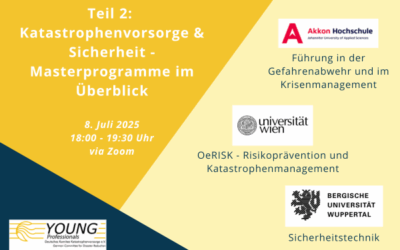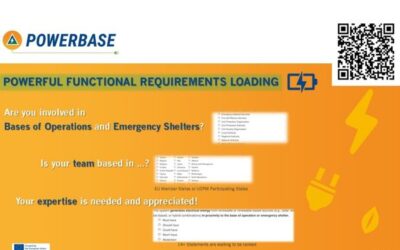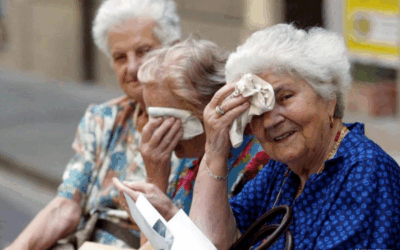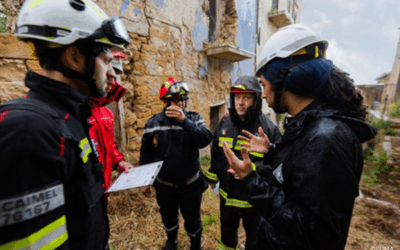The DKKV is…
German Committee for Disaster Reduction e.V. (ger.: Deutsches Komitee Katastrophenvorsorge e.V.)
Newsblog
Part 2 of the event: Master’s programs at a glance on July 8, 2025
Due to the great interest, we cordially invite you to the second online event, led by the Young Professionals of DKKV, of the series “Disaster Risk Reduction & Security - Master Programs at a Glance” on July 8, 2025 from 18:00 to 19:30 via Zoom. Three Master's...
Participate quickly! – Powerbase – online survey on energy solutions
As part of the EU-funded “POWERBASE” project, in which the Austrian Red Cross is involved as a partner organization, an online survey is currently underway. A participant in the Master's program, who is supporting the project on behalf of the Austrian Red Cross, is...
Warning of heatwave with almost 40 degrees in Germany
Germany is facing an intense heatwave in the coming days, peaking on Wednesday, with temperatures of up to 39 degrees and tropical nights of over 20 degrees, according to the German weather service. In addition to the high heat load, the risk of forest fires is also...
DKKV visit by a delegation from China
On Friday, June 27, 2025, a delegation from the International Department of the National Ethnic Affairs Commission (NEAC) from China, which deals with international relations and cooperation in the field of ethnic politics, visited us at the DKKV office in Bonn. At...
EUMA Summer School: Disaster Risk Management 2.0 – Current and Future Challenges, Pisa, 22–26 September 2025
The EUMA Summer School will take place from 22 to 26 September 2025 at the Sant’Anna School of Advanced Studies in Pisa, Italy, as the final teaching activity of the EU-funded EUMA project. It offers 36 hours of instruction over five days and combines classroom...
Follow us
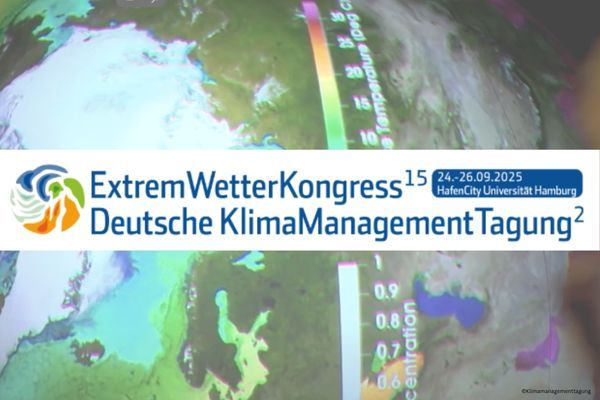
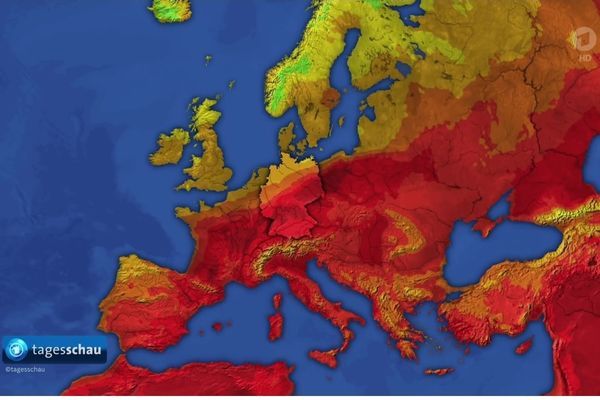
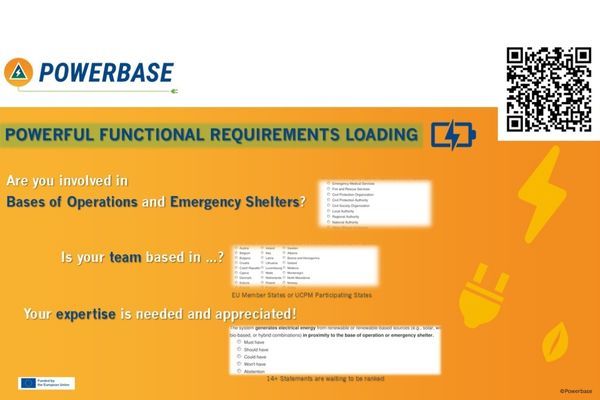
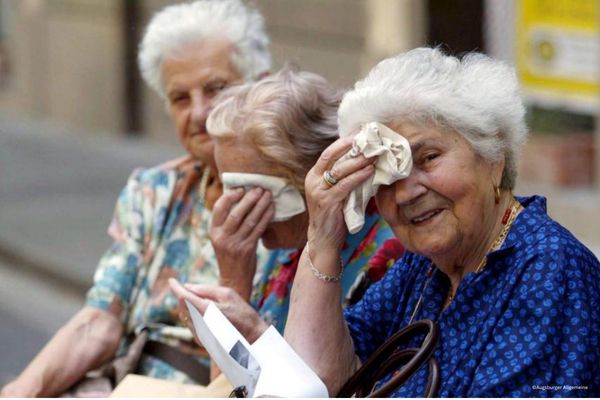
What is disaster risk reduction?
Storms, natural hazards and extreme events can quickly become a danger to people and the environment. But climate change, extreme urbanization, power outages and fires also offer potential hazards.
A disaster occurs when the functioning of a community or society is impaired or interrupted and, as a result, high human, material, economic and ecological losses occur that cannot be managed alone.
Precautionary measures can help to reduce the consequences and impact of the disaster. Depending on the hazard and personal circumstances, the precautionary measures to be taken may vary.
Find out more about potential hazards and individual precautionary measures on our topic pages.


